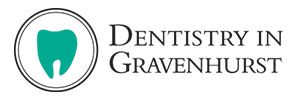Pregnancy can be an exciting time with a lot of physical changes happening for the mom to be. But one thing many women may not know is that the pregnancy hormones can also cause changes to your overall oral health.
Some women may find that their gums become tender, sore or even bleed during pregnancy. Gingivitis (inflammation of the gums) and periodontitis (gum disease) are both common during pregnancy. In fact, with the hormonal changes occurring, up to 40 percent of women can develop some degree of gingivitis during their pregnancy – this condition is referred to as pregnancy gingivitis.
Increased levels of progesterone make the gum tissue more susceptible to plaque and increases the ability for bacteria that causes gingivitis to grow and multiple. One way to minimize gingivitis is to regularly brush your teeth and gums. Brushing will remove any access bacteria and plaque as well as massage the gums. Use a fluoride toothpaste at least twice a day especially in the morning and before bed. And of course don’t forget to floss as it removes build up that regular brushing can not reach.
Although it’s easy to get bogged down with the additional OB visits or naturally feeling tired during pregnancy, it’s important to continue with your oral hygiene and check ups. Regular dental check ups and cleanings are safe during pregnancy. However, be sure to advise your dental providers that you are pregnant. Your dentist may have recommendations to help you with your oral health while you are pregnant. Also, if x-rays are required during your visit to the dentist, they will know to use a lead apron to shield you and your baby.
Eating a balanced diet during pregnancy will help promote dental health and overall health for you and your baby. A baby’s teeth begin to develop between months 3 to 6 of pregnancy, so be sure that you are getting enough calcium, vitamin D, C and A, phosphorous, and protein to provide the best nutrition to help your babies teeth form. When you do snack, try choosing foods that are low in sugar and nutritious for both of you. Raw fruits and vegetables, yogurt, or cheese are all great options.
Remember to look after your teeth, mouth and gums during pregnancy and ask your dental health provider if you have any questions.


 Eating right, keeps your smile bright!
Eating right, keeps your smile bright!